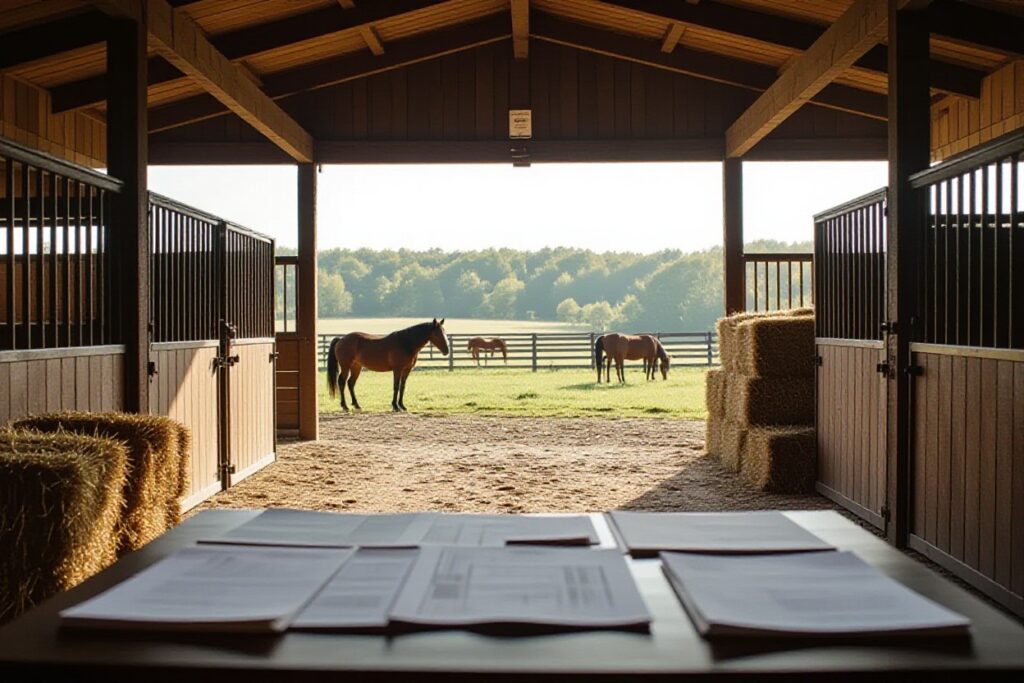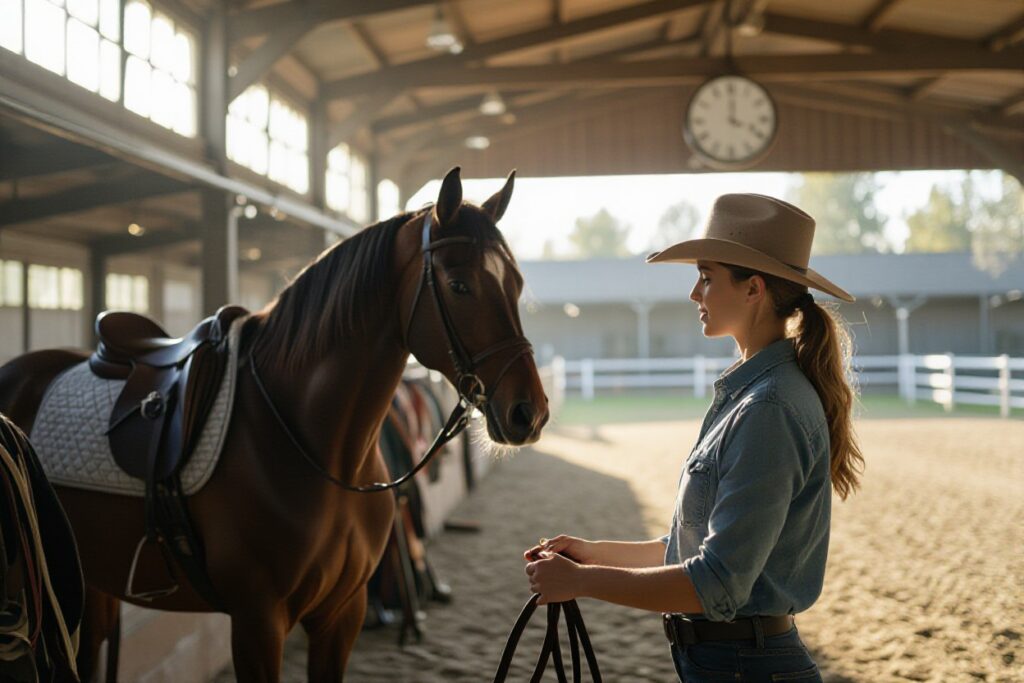Gallop into the world of Equine Law as you navigate through the legal framework surrounding horse ownership. Knowing your rights and responsibilities is crucial to protect yourself and your equine companions. From liability issues to property rights, this guide will help you grasp the intricate details of equine law and ensure you are well-informed to make the right decisions when it comes to your equine activities.

The Basics of Equine Law
Definition and Scope of Equine Law
Scope: Equine law encompasses a specialized area of legal practice that deals specifically with issues related to horses, horse ownership, and horse-related activities. This includes a wide range of topics such as contracts for the purchase and sale of horses, liability for horse-related injuries, zoning regulations for equine facilities, and disputes over horse-related transactions.
Importance of Knowing Equine Law
Equine: Understanding equine law is crucial for anyone involved in the horse industry, whether you are a horse owner, trainer, stable operator, or even just a casual rider. Having a good grasp of equine law can help you navigate legal challenges effectively, protect your rights, and avoid costly disputes or liabilities.
Plus: By being knowledgeable about equine law, you can ensure that you are complying with relevant regulations and laws, which can help you operate your equine business smoothly and ethically. Ultimately, being informed about equine law can give you peace of mind and confidence in your equine-related ventures.
Ownership and Possession
Legal Rights and Responsibilities of Horse Owners
Owners have a variety of legal rights and responsibilities when it comes to owning a horse. As a horse owner, you have the right to make decisions concerning the care, training, and use of your horse. This includes choosing a veterinarian, farrier, and other professionals involved in your horse’s well-being. Responsibilities of horse owners include providing proper food, water, shelter, and veterinary care for their horse.
Transfer of Ownership and Liability
On the other hand, when it comes to transfer of ownership, there are important considerations to keep in mind. When you sell or transfer ownership of your horse to another party, you must ensure that the transfer is properly documented to avoid any disputes or liabilities in the future. This documentation may include a bill of sale, transfer of registration papers, and any other relevant contracts.
This process is crucial as it ensures a clear transfer of ownership and can protect you from being liable for any actions taken by the new owner of the horse. It is necessary to consult with legal experts specializing in equine law to ensure that all legal aspects of the transfer are handled correctly.

Care and Welfare
Despite your love for horses, it is important to understand the legal obligations that come with caring for them.
Legal Obligations for Horse Care and Welfare
Any individual who owns or is responsible for a horse must provide proper care, food, water, shelter, and medical attention as necessary. This includes ensuring the horse has adequate space to move around, access to clean water at all times, and appropriate nutrition to maintain good health. Failure to meet these standards may result in legal consequences.
Consequences of Neglect or Abuse
Legal repercussions for neglect or abuse of horses can be severe. This can range from fines to confiscation of the animal and even criminal charges. It is crucial to take your responsibilities as a horse owner seriously to avoid such consequences. If you suspect any form of mistreatment towards a horse, it is crucial to report it to the authorities immediately.
A proper understanding of the legal implications of neglect or abuse is vital for all horse owners. By fulfilling your duties to provide adequate care and welfare for your horse, you not only adhere to the law but also ensure the well-being of your equine companion.
Liabilities and Risks
Many aspects of equine law pertain to liabilities and risks associated with owning, riding, or caring for horses. As a horse owner or rider, it’s crucial to understand your legal obligations and potential risks to protect yourself and others involved.
Rider and Horse Safety
Safety should always be your top priority when it comes to horse riding. As a rider, it’s your responsibility to ensure that you have the proper safety gear, such as a helmet and boots, and that you are properly trained to handle and ride a horse. Similarly, as a horse owner, you must provide a safe environment for both the horse and anyone interacting with the animal.
Accidents and Injuries: Who is Liable?
With accidents and injuries involving horses, determining liability can be complex. In cases where a rider is injured due to a fall from a horse, the legal concept of negligence often comes into play. If it can be proven that the horse owner or another party was negligent in their actions or in providing a safe environment, they could be held liable for the rider’s injuries.
Understanding the nuances of liability in equine-related incidents is crucial for both horse owners and riders. It’s important to be aware of your rights and responsibilities to minimize risks and ensure a safe and enjoyable experience for everyone involved.

Contracts and Agreements
Now, when it comes to navigating the complex world of equine law, understanding contracts and agreements is crucial. These legal documents outline the rights and responsibilities of each party involved in any transaction or arrangement in the horse industry. Whether you are buying, selling, leasing, or entering into any other agreement related to horses, having a clear and concise contract is crucial to protect your interests.
Buying and Selling Horses: Legal Considerations
For those looking to buy or sell a horse, there are several legal considerations to keep in mind. It’s important to have a written contract that includes details such as the purchase price, the horse’s health history, any warranties or guarantees, and provisions for a vet check. By clearly outlining these terms in writing, you can protect yourself in case any issues arise post-purchase.
Equine-Related Contracts and Disputes
One crucial aspect of equine law is understanding the various contracts and agreements that are common in the horse industry. Whether you are entering into a boarding agreement, a breeding contract, or a partnership agreement, having a solid understanding of the legal implications is critical. In case of any disputes or disagreements, having a well-drafted contract can protect your rights and clarify the responsibilities of all parties involved.
Disputes that may arise from equine-related contracts can range from issues with payment, quality of services, ownership rights, or breach of contract. It’s crucial to address any conflicts through legal channels and seek the guidance of an experienced equine lawyer to protect your interests and resolve the dispute efficiently.

Regulatory Compliance
All equine activities are subject to various regulations at both the local and national levels. It is necessary to understand and comply with these regulations to ensure the safety of both horses and participants, as well as to avoid any legal repercussions. Failure to comply with these regulations can result in fines, penalties, or even the closure of your equine business.
Local and National Regulations Governing Equine Activities
For all equine activities, you must familiarize yourself with the local and national regulations that govern the industry. These regulations may cover areas such as zoning requirements, animal welfare laws, licensing and permits, and liability issues. It is your responsibility to stay informed about these regulations and ensure that your equine activities comply with them at all times.
Compliance and Enforcement: What to Expect
Compliance with equine regulations is crucial, as violations can lead to serious consequences. Regulatory agencies may conduct inspections, investigations, and audits to ensure compliance with the law. If a violation is detected, enforcement actions can range from warnings and fines to license suspension or revocation. It is in your best interest to cooperate with regulatory authorities and address any compliance issues promptly and effectively.
What to expect during compliance and enforcement processes can vary depending on the nature and severity of the violation. Understanding the enforcement procedures and your rights in such situations is necessary to protecting your equine business and reputation.
Summing up
To wrap up, understanding equine law is crucial for all horse owners to ensure that they are aware of their rights and responsibilities. Whether you are a professional in the equine industry or a casual rider, knowing the legal aspects of owning and caring for horses can help protect both you and your animals.
By educating yourself on equine law, you can avoid potential disputes and legal issues, as well as ensure the welfare and safety of your horses. Remember to stay informed about any changes in legislation that may affect you, and don’t hesitate to seek legal advice when needed to navigate the complexities of equine law.
FAQ
Q: What is equine law?
A: Equine law is a specialized area of law that deals with legal issues relevant to horses, horse owners, and horse-related businesses.
Q: What are some common legal issues in equine law?
A: Common legal issues in equine law include liability for horse-related accidents, contracts for buying/selling horses, zoning laws related to horse properties, and disputes over ownership or use of horses.
Q: Do I need a lawyer for equine-related legal matters?
A: It is recommended to seek the advice of a lawyer who specializes in equine law to ensure that your rights are protected and that you are in compliance with the relevant laws and regulations.
Q: What are my rights as a horse owner?
A: As a horse owner, you have the right to proper care and treatment of your horse, the right to determine how your horse is used or handled, and the right to seek compensation if your horse is injured due to someone else’s negligence.
Q: What are my responsibilities as a horse owner?
A: As a horse owner, you have a responsibility to provide your horse with necessary food, water, shelter, and veterinary care. You are also responsible for ensuring that your horse is not a danger to others and for complying with relevant laws and regulations related to horse ownership.










